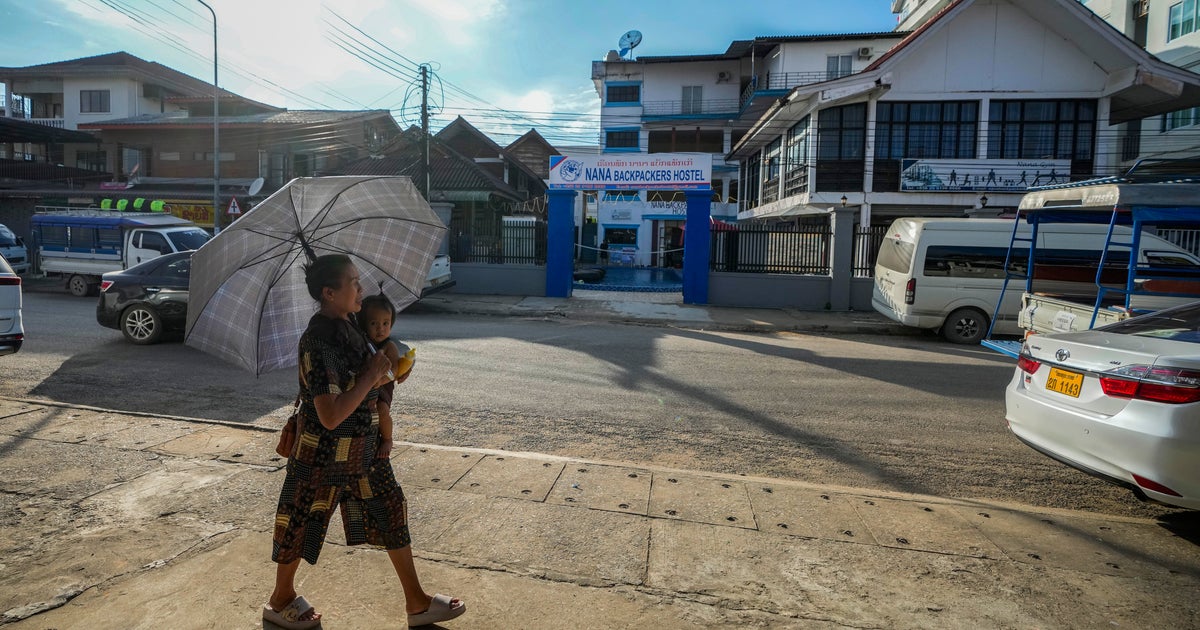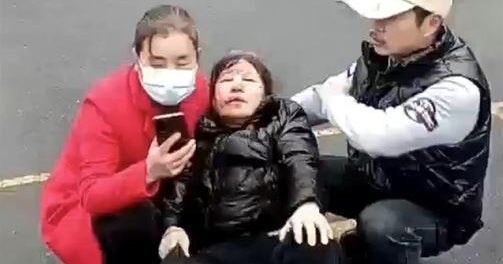Iranian president orders probe after 22-year-old woman reportedly dies in custody of "morality police"
Iran's president has ordered an investigation in the case of a young woman who slipped into a coma while in custody in Tehran and died, state media reported on Friday. The police have said she suffered a heart attack.
According to the state-run IRNA news agency, President Ebrahim Raisi asked Interior Minister Ahmad Vahidi to "investigate the cause of the incident with urgency and special attention."
According to reports by local media, Mahsa Amini, 22, was detained earlier this week by the so-called "morality police" after officers apparently found fault with her headscarf, or hijab.
The headscarf has been compulsory for women in Iran since after the 1979 Islamic Revolution and members of the morality police enforce the strict dress code.
Police said on Thursday that Amini, who was arrested on Tuesday, was taken to a hospital after she allegedly had a heart attack while in custody. Pro-reform news websites quoted an uncle of Amini as saying she had no history of heart disease.
On Friday, police said there was no violence toward or physical contact between officers and Amini while she was in custody. Police also showed closed-circuit footage appearing to show Amini inside a police station, with other detainees.
At one point she stands up from a chair, goes to speak to another woman, then holds her head with both hands, stumbles against a chair and collapses. In the next segment she is being carried away on a stretcher.
The official website of Iran's judiciary, Mizan.news, said that Tehran's chief prosecutor, Ali Salehi, ordered a police team of forensic pathologists to examine the medical aspects of the case.
Iran's morality police has been criticized in recent years over its treatment of people, especially young women, and videos uploaded on social media have shown officers forcing women into police vehicles.
Iran's supreme leader, Ayatollah Ali Khamenei, has supported a softer attitude toward women who do not comply with the official dress code.
But hard-liners have called for harsh punishment and even lashes, arguing that allowing women to show their hair leads to moral decay and the disintegration of families. The judiciary has in recent years urged people to inform on women who do not wear the hijab.
Since 2017, after dozens of women publicly took off their headscarves in a wave of protests, the authorities adopted tougher measures.
"Countless victims of the Islamic Republic's war on women"
Amini's case has drawn condemnation from Iranian celebrities, athletes and other public figures.
Former pro-reform President Mohammad Khatami said the behavior of the morality police was a "disaster" while outspoken politician and former lawmaker Mahmoud Sadeghi called on Khamenei to speak publicly about Amini's case.
Popular former soccer player, Ali Karimi, tweeted that while children of high-ranking officials are leaving the country, "our children are dying."
Hossein Mahini, another former soccer player, said in a tweet, addressing the morality police: "We hate you."
Images posted on social media showed crowds gathering outside the hospital where she was being treated and police seeking to disperse the dozens who had gathered.
"The circumstances leading to the suspicious death in custody of 22-year-old young woman Mahsa Amini, which include allegations of torture and other ill-treatment in custody, must be criminally investigated," Amnesty International said.
"The so-called 'morality police' in Tehran arbitrarily arrested her three days before her death while enforcing the country's abusive, degrading and discriminatory forced veiling laws. All agents and officials responsible must face justice," it added.
On Twitter, prominent Iranian lawyer Saeed Dehghan described Amini's death as a "murder," saying she had suffered a blow to the head which had caused the base of her skull to fracture.
Several lawmakers said they would raise the case in parliament while the judiciary said it would form a special task force to investigate.
The New York-based Center for Human Rights in Iran described her death as a "preventable tragedy."
"Mahsa Amini is one among countless victims of the Islamic Republic's war on women," said Hadi Ghaemi, the group's executive director. "She was arrested under the guise of the state's forced-hijab law and died shortly after. The government is responsible for her death and decades of women being harassed, detained and otherwise harmed under the guise of this discriminatory, inhuman law."
Amini's death comes amid growing controversy both inside and outside Iran over the conduct of the morality police, known formally as the Gasht-e Ershad (Guidance Patrol).
In July, a video of a woman standing in front of one of the force's vans pleading for her daughter's release went viral on social media.
The veiled woman kept holding on to the van as it pulled off, only being thrown clear after it gathered speed.
Also in July, a young Iranian woman, Sepideh Rashno, disappeared after becoming involved in a dispute on a Tehran bus with another woman who accused her of removing her headscarf.
She was held by the Revolutionary Guards and appeared on television in what activists said was a forced confession before being released on bail in late August.
Activists accuse Iran of being in the throes of a major crackdown that is affecting all areas of society, including a new push against the Bahai religious minority, death sentences for gays, a surge in executions and arrests of foreign nationals.
Raisi plans to travel to New York for the UN General Assembly next month where he is set to face intense scrutiny over Iran's human rights record.
AFP contributed to this report.




